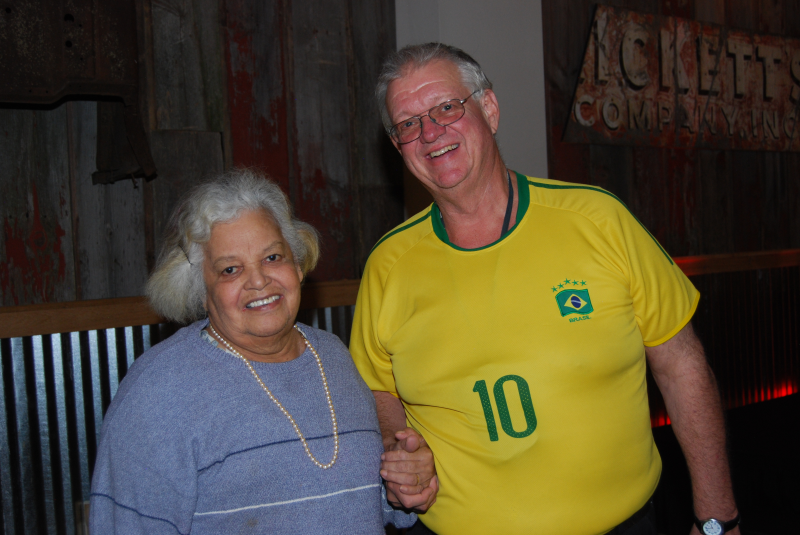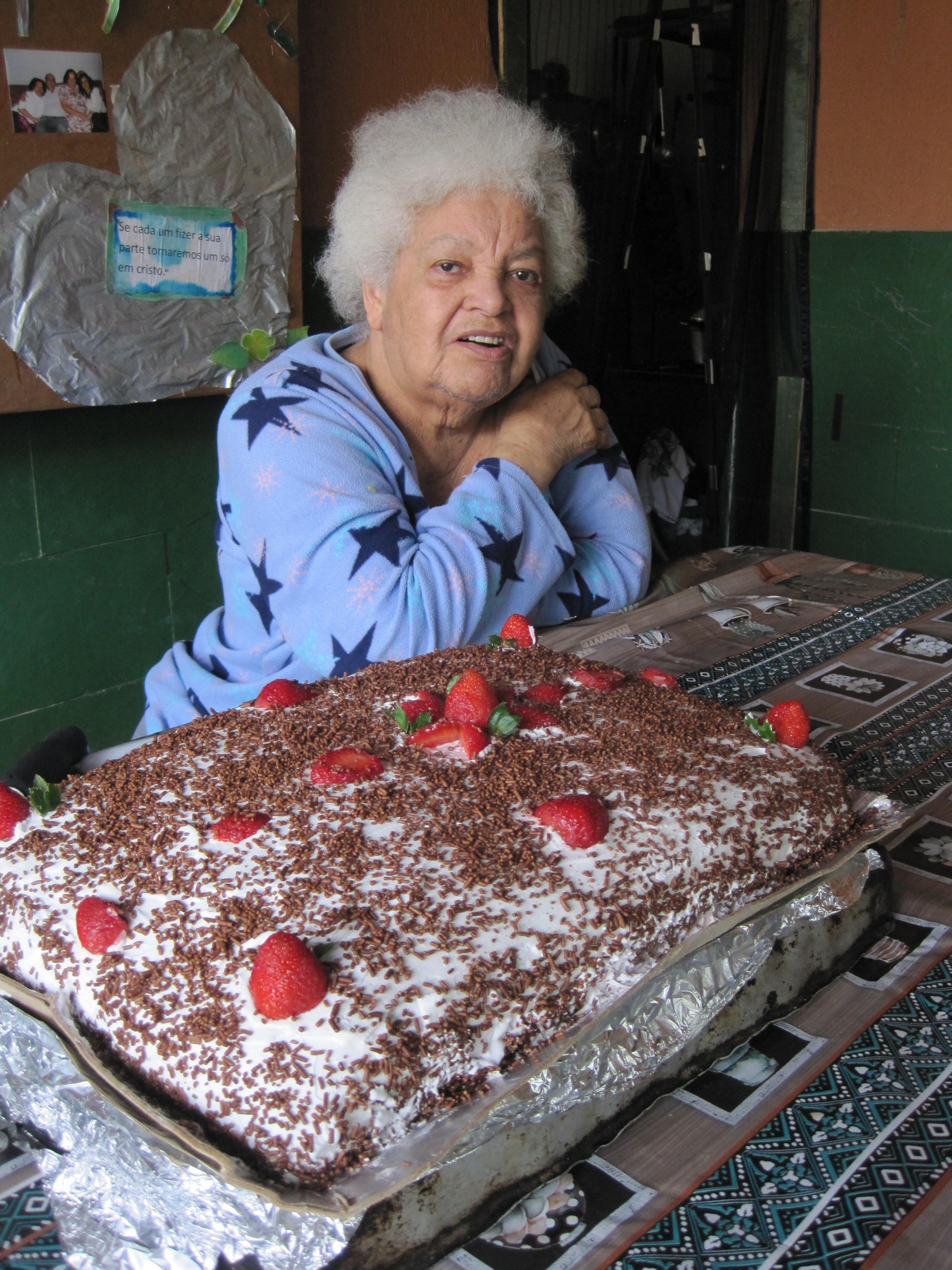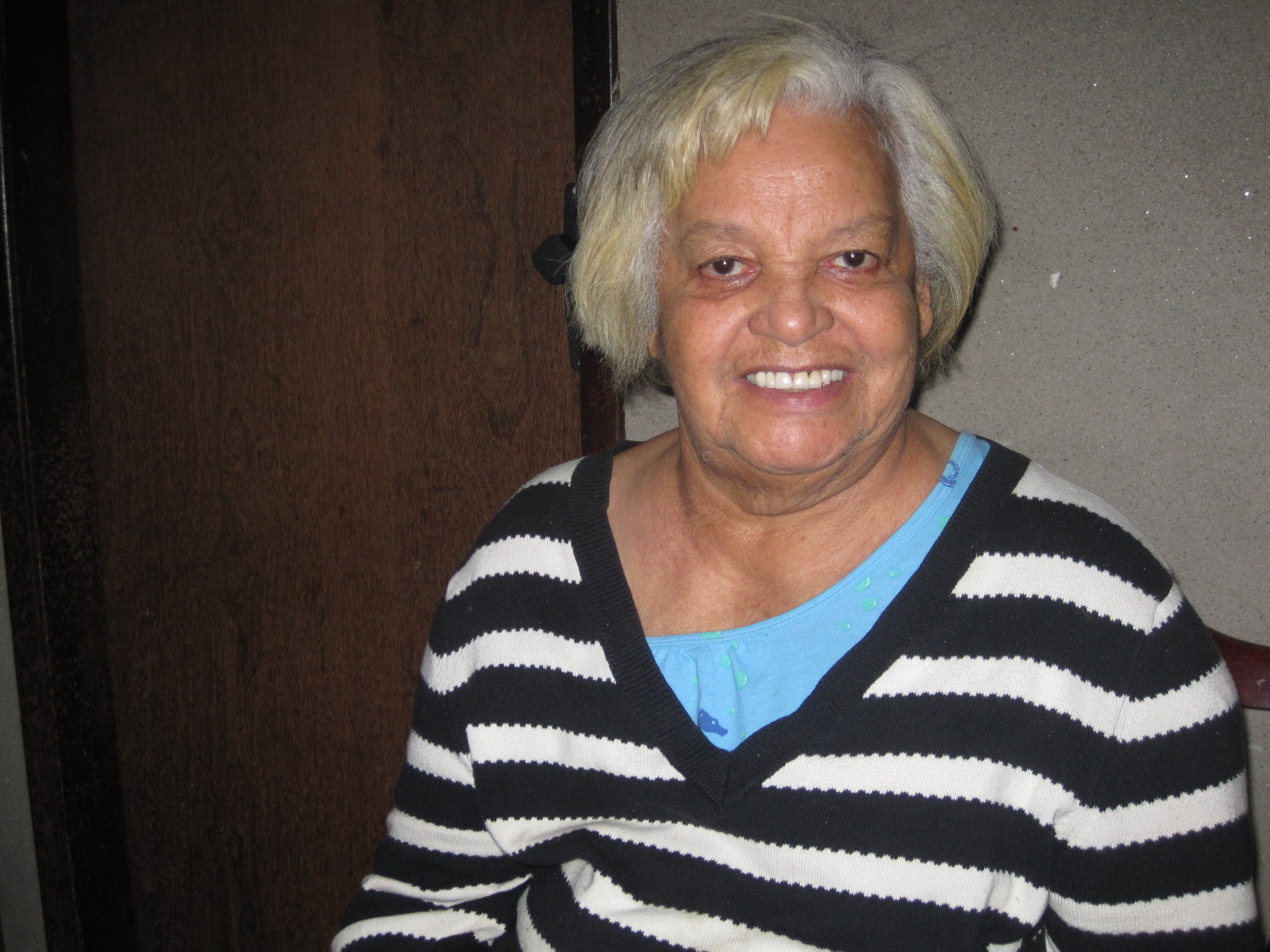We Only Have One Choice: Pray and Keep Pushing Forward
by John Otte Retired Editor | January 18, 2022

The journey begins
“Don’t do like my mother did and wait too long to get outside help,” an acquaintance urged when I told him my bride had been diagnosed with some sort of dementia.
At the time I was clueless as to what lie ahead.
In 2010, Maria was diagnosed with breast cancer. Double mastectomy, one chemotherapy treatment, Methicillin-resistant Staphylococcus aureus (MRSA) in the blood, MRSA in the lungs, Klebsiella pneumoniae in the blood, two blood clots, 33 radiation treatments.
The doctor told us that given the type of cancer Maria had and her age, which was 72 at the time, odds were 85% she would beat the cancer and 85% chance something else would end up getting her. Had we known at the time that the “something else” would be dementia, we might not have fought those cancer-complication infections so hard.
I thought that if we could beat breast cancer, our lives would return to normal. I would soon learn that normal, as we had known it, was never coming back. We would have to create our “new” normal and I would get very little help from my life partner to do so.
Dementia diagnosis
In 2012, our general practitioner sent us to a neurologist. I could not observe the memory test the technician gave Maria. Upon meeting the neurologist, I asked, “How did she do?” The neurologist responded, “Quite frankly, not very well.” That did not surprise me. Maria is a Brasilian. In spite of being in the United States since 1967, her command of English was not all that great. (Maria’s English was better than my command of Portuguese is now. You are supposed to chuckle.)
The neurologist explained that medicines are available that can slow the rate of memory loss. But no medicines exist that can recover memories that are already gone.
I thought Maria had been doing a respectable job managing her blood pressure pills, diabetes pills, and medicines for chronic back pain. Adding anti-memory loss medicines to the mix complicated matters.
The general practitioner shifted Maria’s diabetes treatment from pills to insulin. He sent Maria to a nurse to explain how to test her blood and figure out how much insulin to inject. The nurse concluded that Maria did not comprehend anything. The nurse called me. I went to the doctor’s office. I explained to the nurse that Maria viewed insulin as a death sentence. In April 1992, Maria’s mother’s doctor put Maria’s mother on insulin. A month later her mom was dead.
Outside observers can provide insight

In 2015, I lost my job in a corporate downsizing. That was fortuitous. It freed up time to become a full-time caregiver. People can convince themselves that they can handle being on call 24-7. They think they can do it all alone. But the steadily accumulating load wears on them.
People began telling me, “I don’t see how you can manage all of Maria’s medical issues.”Such comments helped me recognize the additional load that I had been taking on. I heard echoes of my acquaintance’s urging not to wait too long to get outside help.
We hired Senior Helpers to come in two or three afternoons a week. I would go buy groceries, go fishing, visit friends, or simply get away. That provided relief.
Family sees payback opportunity
Going to Brasil to the house we bought in Juatuba, Minas Gerais, that’s diagonally across the street from Maria’s youngest sister, Clara, provided the most relief. Maria’s mother had 11 pregnancies. Maria was the oldest of eight who lived to be adults. Their father died when Maria was 16. Maria’s mother faced pressure to adopt out the youngest three. She refused. For 20 years Maria sent money to her mother to help hold the family together. She, and later we, developed a special closeness to her youngest siblings.
Clara is 15 years younger than Maria. She told me, “Maria sacrificed much to help us when we were young. Now it’s our turn to help.” She and her husband, Tarcisio, took over a huge share of the caregiver load that I had been carrying.
Only distant memories remained
With a big family, we had many people to visit. Maria would talk about happenings of the old days. Her siblings, aunts, uncle, nieces, and nephews thought Maria was reminiscing. They did not comprehend that Maria had to reminisce because she had no recent memories. I cried.
The occasional visitors thought Maria was still mostly normal. Those closest to her, particularly Clara and Tarcisio, clearly saw that Maria’s brain was rapidly becoming an empty shell right before their very eyes.
I continued to pray, love, and push forward.
The fade accelerates
We got off the plane in Brasil on Nov. 11, 2019. In December we spent 12 days with Maria’s brother, Sabastiao. In January, we spent 10 days with Maria’s brother, Wilson. Neither house is handicapped accessible. Both times I feared we might not be able to get Maria back to our house in Juatuba.
By this time both brothers recognized full well that their sister continued to exist. But she no longer lived.
The most painful day that I had up to that point was when Maria asked me, “Are we married? Are we going to get married?”
The message I received was clear. The memories of the forty years we had together no longer existed. I cried.
She hit me
Some dementia patients get argumentative or belligerent. Some wander off and can’t find their way back.
In mid-February I went swimming at the senior center, Clara stayed with Maria. I picked Wilson up at the bus stop. When we got to the house, Tarcisio met us in the street. He told us that Maria had fallen. Clara had her lying on a blanket with a pillow in front of the bathroom.
The plan was Tarcisio would lift her under her right armpit. I would lift under her left. Wilson would push a chair under her. We started to lift. Maria made a fist with her right hand and punched my left lower arm as hard as she could.
That was the closest Maria came to being belligerent. I am guessing that a sharp pain somewhere drove her aggression. Could be a change in personality contributed.
I continued to pray, love, and push forward.
The suffering ends
Maria died in the early morning of March 3, 2020. The doctor who examined the body said that he did not know what took her. However, based on an odor that Clara and I had also been detecting, he said that he thought Maria was eaten up inside with cancer. We buried her that afternoon.
Tarcisio and I chose a saying for the ribbon on the casket spray. Clara chose a more appropriate one. It reads: Agradecemos por tudo que fizeste por nos em vida. That translates to: We thank you for everything you have done for us in life.
COVID blessings
We had been scheduled to leave Brasil March 31. COVID-19 delayed my departure until Sept. 2.
For five months, I figured the hardest night I had ahead of me would be the first night I went to bed in our Urbandale, Iowa, house and Maria would not be there. I figured the hardest day I had ahead of me would be the first morning I woke and Maria would not be beside me. The extra five months I spent in Brasil eased that transition.
That does not mean all went smoothly.
In our Urbandale home, the water lines for the master bathroom are on exterior walls. I drain them when we leave in cold weather. I had been back two weeks before I pressurized them. I opened the shower stall. There, on Maria’s plastic chair, was her nightshirt that I had washed right before we left and put on that chair to dry. I cried.
That was the hardest day that I have had since I have been back to Iowa.
A few take home messages

Our experiences of recent years have reinforced something we have known to be true forever. That being: Our only choice is to pray, put it all in God’s hands, and keep pushing forward.
Fifty years ago, we would listen to the old folk discussing situations that even older folk faced. Those conversations were what today we would call the “quality of life” discussion. Back then, we were clueless. We are clueless no more.
Many folk have offered condolences on Maria’s passing. I appreciate those expressions of concern. However, I respond that Maria’s passing was a blessing. She had shifted from living to existing. I took over managing Maria’s medicines. I also prayed, loved, and pushed forward.
I have written numerous letters expressing condolences. I typically end with: Laugh when you can. Cry when you must. Savor the memories of the good times.

